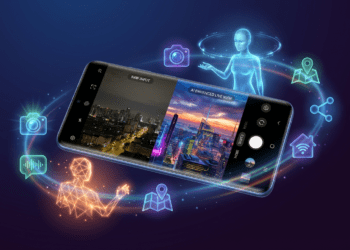
Microsoft is fundamentally reshaping how we work. The tech giant just unleashed a suite of AI agents across Teams, turning every meeting, channel, and community into an AI-enhanced workspace. This isn’t just another feature update it’s a complete reimagining of workplace collaboration.
The Dawn of Human-Agent Teams
Work has always been a team sport. But until now, AI served as a personal assistant rather than a true teammate. That changes today. Microsoft announced new collaboration-focused agents for Microsoft 365 Copilot users. These agents give every team, project, meeting, and community an AI teammate.
The transformation is immediate and comprehensive. These aren’t simple chatbots. They’re context-aware AI agents designed to enhance work across Microsoft Teams, SharePoint, and Viva Engage. They coordinate, communicate, and execute with remarkable clarity and efficiency.
Nicole Herskowitz, Corporate Vice President of Microsoft 365 and Copilot, frames this as moving “beyond personal productivity to enable teams to work together with AI.” The agents leverage work intelligence from Microsoft Graph while maintaining enterprise-grade security, identity, compliance, and admin controls.
Meet Your New AI Teammates
Microsoft has deployed four distinct types of agents, each tailored for specific collaboration scenarios. Let’s explore how these digital teammates will transform your workday.
Facilitator Agents: Your Meeting Moderator
The Facilitator agent represents perhaps the most immediately useful addition. According to The Verge, these agents sit in on Teams meetings, creating agendas, taking notes, and answering questions. They suggest time allotments for different meeting topics and create documents and tasks.
The mobile version activates “with a single tap,” ensuring no spontaneous hallway chat or impromptu sync gets missed. This addresses a common workplace pain point capturing decisions and action items from informal conversations.
Channel Agents: Project Intelligence
Channel agents transform Teams channels into intelligent project hubs. NewsBytes reports these agents answer questions based on previous conversations and meetings in a channel. They can generate project status reports automatically.
Imagine a “Project Pluto” channel equipped with its own dedicated agent. Team members can direct this agent to summarize threads, distill decisions, draft plans, and schedule checkpoints. The agent coordinates with Project Manager agents to create tasks and keep work moving forward.
Community Agents: Knowledge Scaling
Community agents work within Viva Engage, Microsoft’s company-wide social network platform. These agents primarily support community admins by answering questions from other users. They scan past conversations and SharePoint resources to draft grounded replies.
Administrators control whether agents auto-post answers or submit them for moderator review. They can also apply “Verified Answer” badges to approved AI responses, fostering trust while scaling knowledge distribution.
Knowledge Agents: Behind-the-Scenes Organization
Knowledge agents operate in SharePoint, working behind the scenes to organize, tag, and summarize files. They keep project workspaces in shape by organizing and enriching files, applying appropriate tags, tracking updates, and stitching together related content from Teams channels, meetings, and communities.
Real-World Impact: A Day in the Life
Consider how these agents transform a typical product launch scenario. The “Project Pluto” team consolidates conversations and plans into a dedicated Teams channel. The Project Pluto Agent summarizes threads, distills decisions, and drafts plans.
During planning meetings, the Facilitator agent prepares agendas and proactively takes notes. It keeps discussions on track, captures decisions, and converts them into owned actions with follow-ups. Meeting participants can collectively guide the agent to rearrange agendas or set meeting timers.
To amplify the product launch across the Sales Community in Viva Engage, the Sales Community agent handles announcements and answers common questions with cited sources. It helps community managers keep discussions active and accurate in real-time.
Meanwhile, the Knowledge Agent maintains the Project Pluto workspace. When anyone asks Microsoft 365 Copilot questions like “What’s our approved positioning?” or “Which spec is final?” it pulls the authoritative source with citations.
The Technology Behind the Magic

These agents aren’t operating in isolation. They’re built on Microsoft Graph, honoring the same permissions set in Teams, SharePoint, and OneDrive. If you can’t open a file, the agent can’t use it in responses.
The agents support an open ecosystem of partner-built solutions. With Model Context Protocol (MCP), partner agents can seamlessly collaborate with native Teams agents. They share context and invoke each other’s tools within the same workflow.
Microsoft’s roadmap indicates this is just the beginning. The company is building a comprehensive platform for human-agent collaboration.
Developer Platform and Extensibility
Microsoft isn’t limiting agents to first-party experiences. The strategy makes agents composable building blocks. Copilot Studio and multi-agent orchestration let enterprises create domain-specific agents and coordinate workflows across multiple agents.
The Teams AI Library is now generally available for JavaScript and C#, with Python in preview. Copilot APIs expose retrieval, chat, and meeting capabilities to developers while preserving tenant permissions and compliance controls.
A new GitHub app for Teams allows Copilot-powered translation of conversations into actionable code, including opening pull requests and automating developer workflows inside Teams. This enables development teams to close the loop without switching contexts.
Business Model and Licensing Strategy
All agent experiences require Microsoft 365 Copilot licensing. This represents Microsoft’s commercial strategy agents act as compelling premium capabilities that encourage organizations to adopt paid Copilot SKUs rather than free or basic Teams users.
Organizations must budget for Copilot licenses and navigate data governance implications tied to premium features. The ROI calculation involves projected productivity gains against administrative overhead and licensing costs.
Security, Privacy, and Governance Considerations
These agents operate by ingesting conversation history, meeting transcripts, files, and Planner state. This raises several governance questions that organizations must address.
Data access scope requires explicit controls. Channel agents use channel history by design, while community agents may scan SharePoint. Administrators need clear visibility into what agents can access.
Grounding and citations matter for accuracy. Microsoft markets agents as “grounded” and able to cite sources, but precise behavior depends on retrieval and prompt engineering. Organizations should test how often agents include explicit links or citations.
Auditing and human review become critical. Features like auto-posting in communities and auto-created Planner tasks require audit trails. Organizations must maintain change logs for agent-generated content and configure moderation queues where automatic posting could cause reputational or regulatory risk.
Competitive Landscape and Market Implications
This move puts pressure on competitors like Slack, Salesforce, and other collaboration platforms. The integration of AI agents directly into the collaboration workflow creates a significant competitive advantage for Microsoft.
The timing is particularly strategic. The European Commission recently accepted Microsoft’s binding commitments to alleviate antitrust concerns over Teams’ bundling with Microsoft 365. This settlement reduces immediate regulatory risk while putting the company under sustained oversight in Europe.
Implementation Guidance for Organizations
IT leaders should approach agent adoption strategically. Start with pilot programs using narrow scopes test Facilitator and Channel agents with a single team for 60-90 days before broader rollout.
Define explicit data source policies. Configure which SharePoint libraries, channels, and Planner boards agents can access. Set moderation gates for community agents, defaulting to “suggest-for-moderator” until accuracy metrics meet acceptable thresholds.
Enable detailed logging for agent actions, content generation, and task creations for compliance review. Update user training to document when to trust agent output versus when human validation is required.
The Future of Work is Here

Microsoft’s agent rollout transforms Teams from a communication tool into a persistent, AI-augmented collaboration platform. The combination of meeting facilitation, channel expertise, community knowledge agents, and developer tooling creates a coherent vision for an agent-centric workplace.
This represents more than technological advancement it’s a fundamental shift in how we conceptualize workplace collaboration. AI is no longer a tool we use; it’s a teammate we work alongside.
The implications extend beyond productivity gains. Organizations that treat agents as collaborative teammates with appropriate policy guardrails, auditing, and human-in-the-loop review stand to gain the most. Those that rush to enable broad automation without proper governance risk reputational, legal, and operational costs.
As we stand at this inflection point, one thing is clear: the future of work isn’t just about humans and technology working together. It’s about humans and AI agents forming true collaborative partnerships that amplify human capability while maintaining human oversight and judgment.
The revolution has begun. The question isn’t whether AI agents will transform how we work it’s how quickly organizations will adapt to this new reality.









Comments 1